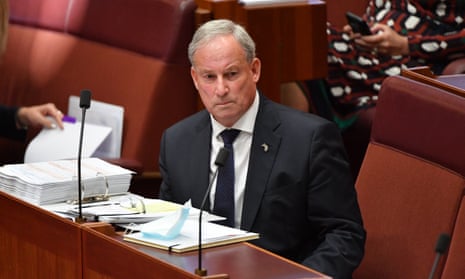Aged care workers are struggling to obtain the government’s promised $800 bonus which the cash-strapped sector is being asked to pay to staff before their funding applications are approved by government.
In January, the government announced it would give 265,000 aged care staff a maximum of $800 in two instalments ahead of the election, responding to pressure over its handling of the pandemic and the underpayment of the sector’s workforce.
Employers were told to make applications for the payment from 1 March for eligible workers who were active in the industry on 28 February.
Providers are being asked to pay the money to their workers at the time they lodge applications with government. Doing so would require the sector, which the royal commission last year found to be seriously underfunded, to pay out the bonuses before their claims for the money are assessed and approved by government.
So far, the government has received just 322 applications, all of which are still being assessed. That’s a fraction of the 1,650 expected by the time applications close in early April.
The design of the scheme has hindered workers’ early access to the payments, according to the Health Services Union and the United Workers Union, which both represent aged care workers.
Gerard Hayes, the secretary of the HSU, said the government had been warned, repeatedly, about the issues limiting access to the scheme.
The first and most obvious hurdle, Hayes said, was that many providers – particularly not-for-profits – did not have the capacity to pay out bonuses to workers while they waited for their claims to be assessed by government.
“The for-profits, there’s not many of them, I can see they might dip into their profit margin,” he told the Guardian. “But the not-for-profits, I’ve got no idea where they would get the money to facilitate this.
“The reality is this is just a lot of show and not a lot of go.”
The aged care director for the UWU, Carolyn Smith, said the impression workers were given after Scott Morrison’s announcement in January was that the payments would be delivered promptly after 1 March.
“So there’s just a level of frustration and anger,” she said. “It’s just been compounded by this overly bureaucratic and slow process.”
She said it had also become clear that some parts of the aged care workforce – including lifestyle and contracted cleaning workers – were excluded entirely from the payment.
The aged care minister, Richard Colbeck, said his department had been encouraging aged care providers to pay their workers “as soon as they submit the application to ensure staff are paid promptly”.
“This is an arrangement solely between the provider as the employer and their employees,” he said.
“It is a demand-driven grant – 322 applications have been received to date.”
He said the government expected to receive applications from 1,650 providers for more than 265,000 workers at a cost of $210m.
The bonus scheme is modelled on the $393m aged care workforce retention payments that were granted in the early stages of the pandemic in 2020. Payments will vary depending on the number of hours worked. Each instalment is a maximum of $400.
The HSU is still waiting on a decision in the Fair Work Commission on its case for a pay rise for aged care workers of 25%, or at least $5 more an hour.
Providers and unions have reached an in-principle agreement on a pay rise.
They have noted that whatever pay increase the Fair Work Commission orders, it should be “fully funded by the federal government and linked to transparency and accountability measures as to how funding is used”.
